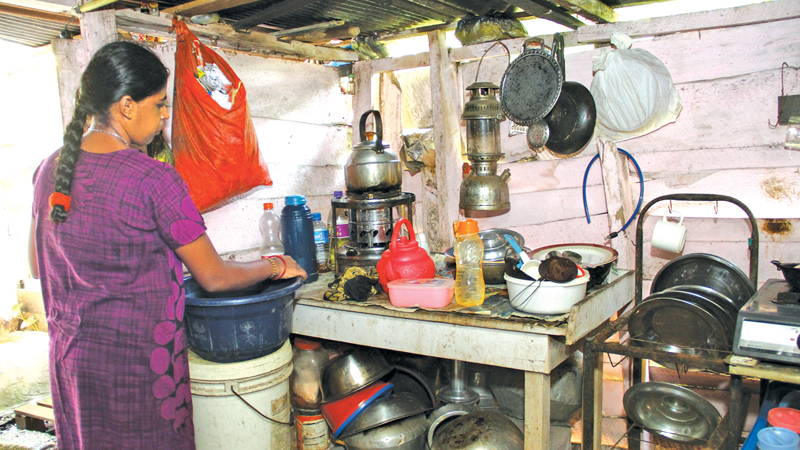A Tamil group is signing a petition apparently meant for UK parliament, to press UK to refer Sri Lanka to International Criminal Court, if it continues to fail to implement its commitment made to the UNHRC Res. [A/HRC/RES/30/1] by March 2019; by agreeing to provide accountability and transitional justice. They say Lanka has failed to implement the resolution and brazenly repudiated its commitments to the UNHRC and victims of the war, so far without consequence.
 They further insist, in March 2018 UN Human Rights Commissioner Zeid Ra'ad Al Hussein has also explicitly expressed his frustration, having lost faith in Lanka’s willingness to engineer transitional justice and has called on member states to “explore other avenues, including the application of universal jurisdiction, that could foster accountability.” The UN Deputy for Human Rights, Kate Gilmore called for the establishment of a Special Court… So they are serious. However the government is also shown it wish to implement its commitments to the international community by appointing committed powerful people to relevant committees and commissions. In addition certain socio economic programmes are to be implemented specifically meant for oppressed women.
They further insist, in March 2018 UN Human Rights Commissioner Zeid Ra'ad Al Hussein has also explicitly expressed his frustration, having lost faith in Lanka’s willingness to engineer transitional justice and has called on member states to “explore other avenues, including the application of universal jurisdiction, that could foster accountability.” The UN Deputy for Human Rights, Kate Gilmore called for the establishment of a Special Court… So they are serious. However the government is also shown it wish to implement its commitments to the international community by appointing committed powerful people to relevant committees and commissions. In addition certain socio economic programmes are to be implemented specifically meant for oppressed women.
Non-consumption loans
Finance Minister Mangala Samaraweera has announced that the government would write off the non-consumption loans granted to women by all registered finance companies up to Rs. 100,000. He said the government had also decided to introduce an interest rate cap of 30 per cent per annum on all future loans given by microfinance companies.
The decision was taken by the Cabinet of Ministers, on the recommendation of the Minister Samaraweera. “This scheme will initially be limited to women who have obtained microfinance loans for non-consumption purposes in the drought-affected districts of Trincomalee, Ampara, Batticaloa, Jaffna, Mulathivu, Kilinochchi, Vavuniya, Mannar, Kurunegala, Puttalam, Anuradhapura and Polonnaruwa where cultivations were affected consecutively for five seasons,” the minister said. This is laudable indeed. But, this is not a total wipe off of debt that is obvious.
It is a restructure. There will be a moratorium on some cases and the payback will be at lesser interest rates. And that is capped at 30 per cent! Also it is for ‘non consumption’ loans.
It is very likely the Tamils in homeland area will not be able to repay loans at 30% until the democratic struggles in the north expand further.
It is true that struggle for land, demilitarization, finding the disappeared, release of political prisoners and justice for war crimes took a new turn with the new appointments who came under the fire of fascistic Mahinda camp. But still, inspite of strong words of new radical officials, unless HR activities under the OMP are won with political autonomy to mind their own business, poor people will be helpless. On the other hand, according to the minister, women who had obtained loans amounting to Rs 100,000 and below can apply for a complete write-off of the loan.
“The General Treasury will reimburse the loss incurred by the microfinance companies for having written off the capital component of the loans. The government has allocated Rs 500 million for this year to initiate the reimbursement programme. The microfinance companies will have to absorb the interest component of the loans written off,” he said.
Economic relief for women
The persons who are benefited by this debt relief programme will be included on a priority basis to provide new loan facilities launched under the Enterprise Sri Lanka programme with a maximum of a two-year grace period. Microfinance institutions are currently providing micro loans without collateral via a door-to-door strategy quoting high-interest rates starting from 40 per cent to 220 per cent per annum for women seeking economic relief and income generation sources.
When multiple loans are obtained under the microfinance scheme, people have to pay a much higher interest than the initial loan amount due to the higher interest premium. So the government has intervened in a timely manner to protect rural women from falling into a debt trap by imposing an interest rate cap of 30 per cent on future loans.
“Contrary to what is often claimed, microcredits are not a way out of poverty; on the contrary they most often result in a greater deprivation and humiliation of their victims. On the Indian sub-continent 65 million people have taken on a microcredit, 90% are women. Worldwide, women count for 81% of microcredit users (112 million). After an enquiry among microcredit victims and militants acting in their defence, we present here some emblematic cases. We point out that we have been unable to meet any advocates of microcredits.
Contrary to the usual claim, (affirmation) that a small loan will permit the development of successful enterprising activities, in most cases the users have used microcredit to cover more imperative and immediate necessities such as rents, loans, costs of schooling or medical treatment. Microcredits in Sri Lanka have most often been granted to women without any income,” say Eric Toussaint the famous social worker and his group who were active in Lanka recently.



Add new comment